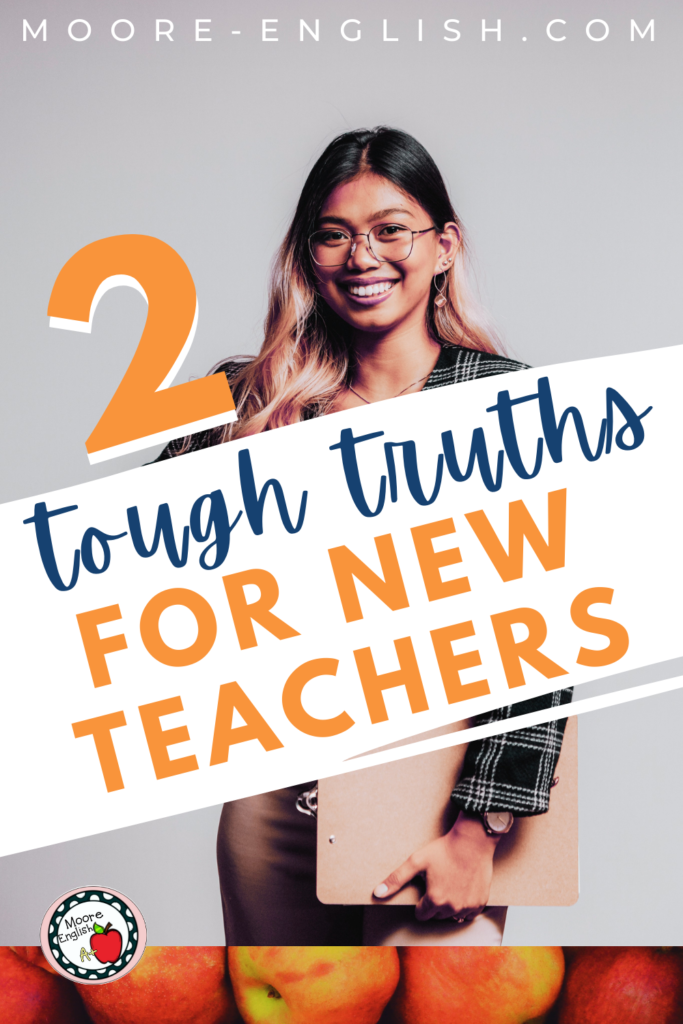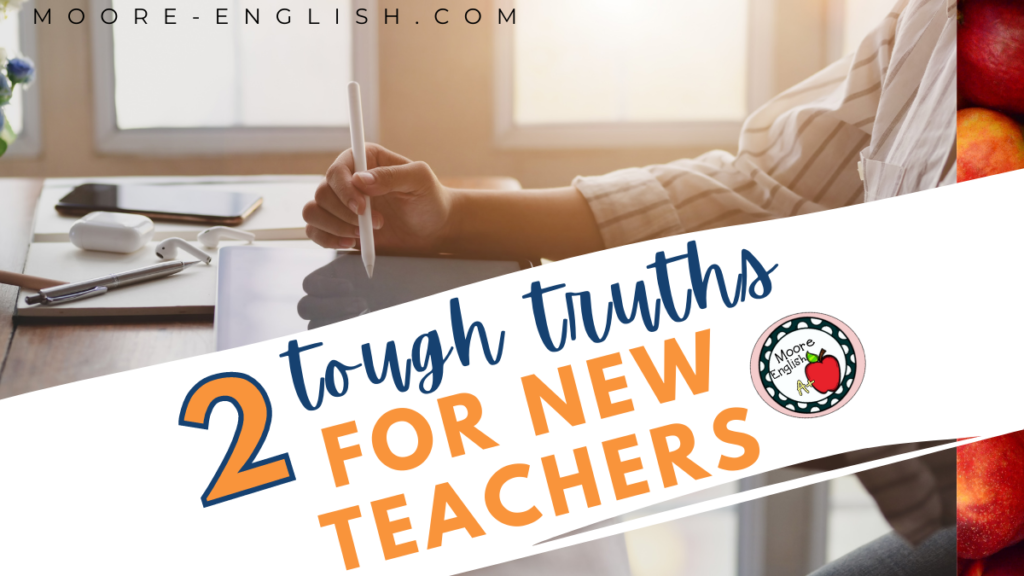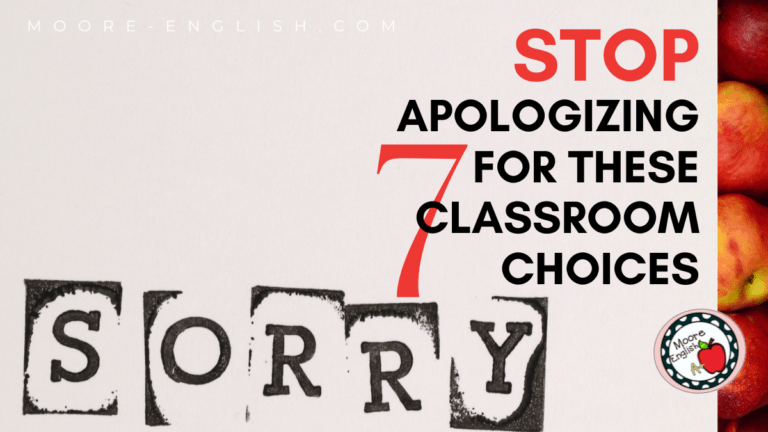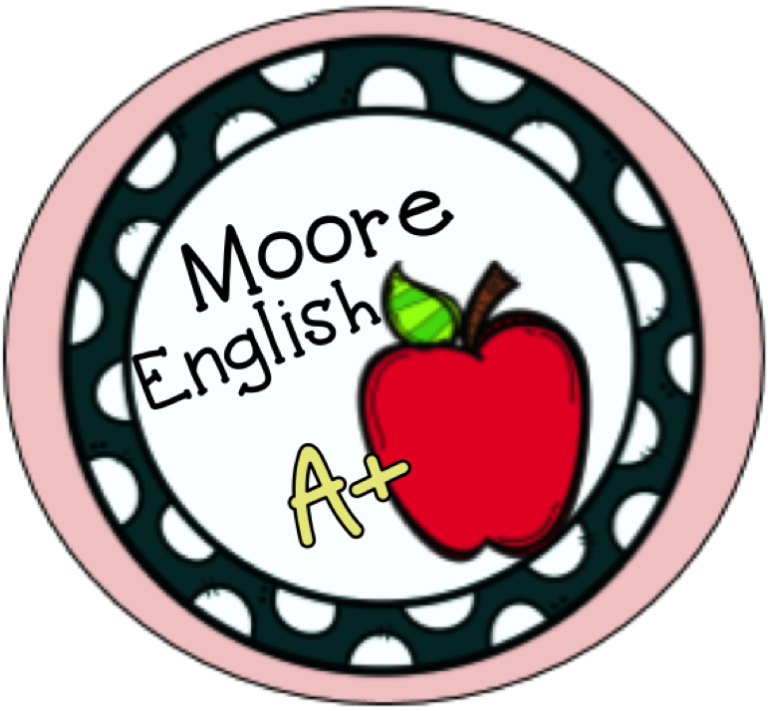My department has a number of new faces this year. I don’t think that’s a surprise to anyone because education is in such upheaval right now. As I was thinking about what I wanted to tell them, I thought: what advice do I wish I’d heard as a new teacher? What tough truths did I need to hear?
While there are lots of things I want to share with new teachers, two tough truths summarize everything. These are the truths I wish someone had shared with me as a new teacher. (Admittedly, I’m pretty stubborn, and it’s possible that I would have ignored them, but these truths would have been nice to hear all the same.)
This post this post may contain affiliate links. Please read the Terms of Use.
Two Tough Truths
Truth #1: The worst thing they can say is “no.”
As a new teacher, I had some fun, creative ideas (like the Macbeth feast), but I had no idea how to ask if that was something I could do. At the end of the day, that first year, I played it safe. Now, after a decade, I know that the worst thing anyone can say is “no.” Unless an idea is dangerous or not student-centered, what can they tell me other than “no”?
The moral of this story is just ask. Your ideas are fresh, fun, and full of color! They center students and focus on helping students engage with the material in creative ways, so go for it! The Powers that Be might say “no,” but it’s better to be turned down than to have never tried at all.
Truth #2: It’s also okay to apologize later rather than ask for permission.
This truth goes right with the first. Sometimes new teachers don’t know who to ask, so sometimes it’s just easier to go forward with your idea and apologize later if things go awry. Unless your idea requires money, permission slips, or a bus, chances are that your idea is instructional rather than recreational.
If you’re really nervous about your plan, send an invitation rather than asking for permission. For example, last year I designed an escape room as part of ACT prep. My students were up and down the hallway, opening lockers, and exploring collaborative spaces. Rather than asking for permission, I just sent an invitation to all the administrators and told them I was trying an exciting new idea and they were welcome to come check it out.
Bonus Truth
Truth #3: Center yourself.
This is a bonus truth. Truths 1 and 2 put students at the center of instruction, which is where they should be. However, it’s also okay to make choices that center your needs rather than students’ needs.
For example, you may have an elaborate idea that students would love, but the plan has a steep toll. It will take more time than you have available, will cost money, and/or has other consequences that will have a negative effect on you and your quality of life.
When situations like this arise (and they arise all the time), it’s okay to center yourself. Take it from a recovering teacher martyr, you are of no use to your students if you burn out.
What other truths would you want to share with new teachers?


















